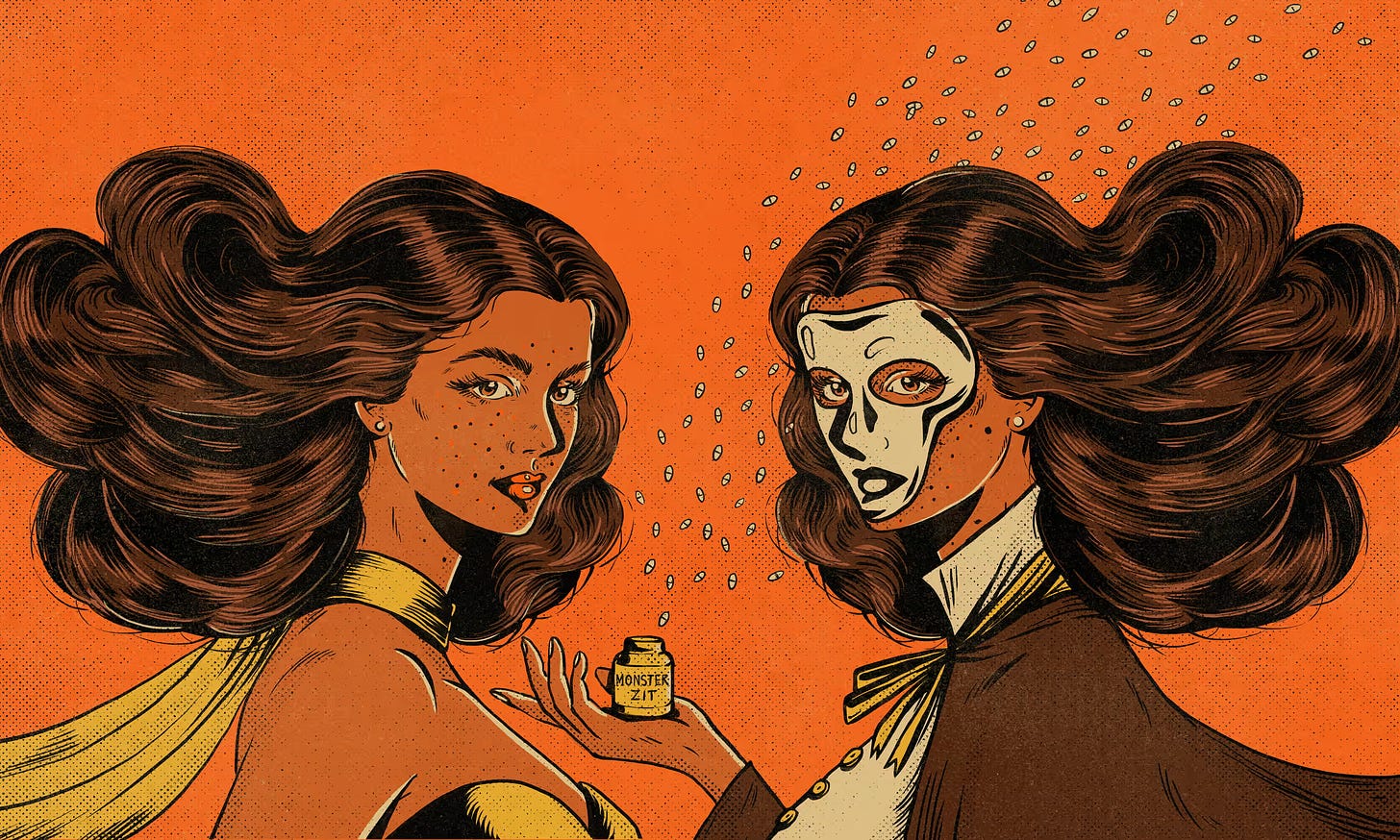The next installment of Ask Ugly, my monthly beauty advice column for the Guardian, is here!
Hey Ugly,
I went to a dermatologist for the first time about a giant thing on my eyelid. It turned out to be a monster zit. Cute. She saw my severe acne scarring and prescribed spironolactone and Accutane. I have a shitload of acne scars and I’ve struggled with acne my entire life; I spent so much on vampire facials and topicals that didn’t work. In the past year I had reached a certain peace with it.
This doctor, however, made me feel like the goddamn Phantom of the Opera. I have a history of depression and suicidal ideation, so Accutane makes me nervous – the doctor brushed off my concerns – and I don’t love that spiro causes breast enlargement, because mine are big enough that I’ve considered a breast reduction.
What I’m asking is: should I just take the damn medication? Is this another gross incidence of beauty culture masquerading as health? Or am I ridiculous for spiraling?
– The Phantom
Phantom, I feel you. I once went to the emergency room for what I was pretty sure was a flesh-eating disease but turned out to be nothing more than an oozing, infected acne cluster. As you say: cute!
I guess I should’ve known. Pimples had taken over my face at puberty, and products took over my life not long after. That orange, oil-free acne wash. The cursed crushed walnut facial scrub. The Alicia Keys-endorsed Proactiv system. And when those didn’t do it? Prescriptions – so many prescriptions! Birth control pills to temper hormonal acne, antibiotics for the rest of it and, later, Accutane.
Having severe acne throughout my teens and 20s was agonizing, occasionally due to the pulsing pain of an under-the-skin cyst, but mostly due to beauty standards and social judgment. (If only there were a pill for that.) Pharmaceuticals did little to ameliorate this agony. My experience with them inspired my career in the beauty industry, actually. I wanted to understand what was happening to my skin, how these drugs were meant to work and why they didn’t really seem to stick.
Before I get going, a disclaimer: I am not a doctor! I will not give you doctor-like advice! You have that covered anyway. What follows is my personal take as a former patient and reporter.
The rest of my answer includes:
how skin functions and why sebum — AKA oil — is essential to those protective functions
how sebum became the industry’s go-to scapegoat for clogged pores
how Accutane works by “damag[ing] the oil glands so they no longer produce oil”, as a dermatologist once explained it to me — and why that can backfire
the limits of spironolactone for treating hormonal acne
my personal experiences with Accutane and hormonal acne prescriptions
when dermatology is just “beauty culture masquerading as health”
how to accept acne and scarring as normal while acknowledging that they can also be communications from the body pointing to a deeper health concern requiring your attention
how to address those concerns in a way that doesn’t demonize the surface-level symptoms
and more!
Click through to the Guardian to read the whole thing (and if you decide to share it with friends or on social media or whatever, please share it via the Guardian link).




Ugh, I’m literally dealing with this right now! So comforting to know I’m not alone💙
Spironolactone was really weird for me. I wear an Apple Watch and after I started taking it I got an alert that my average resting heart rate had increased from 62 to 70. At the same time my average walking HR went from 101 to 122. They stayed there perfectly plateaued for a month until I stopped taking it because I found that worrisome. Why is my heart working harder so I can spare myself zits? Things went back to normal as soon I stopped. Bizarre.